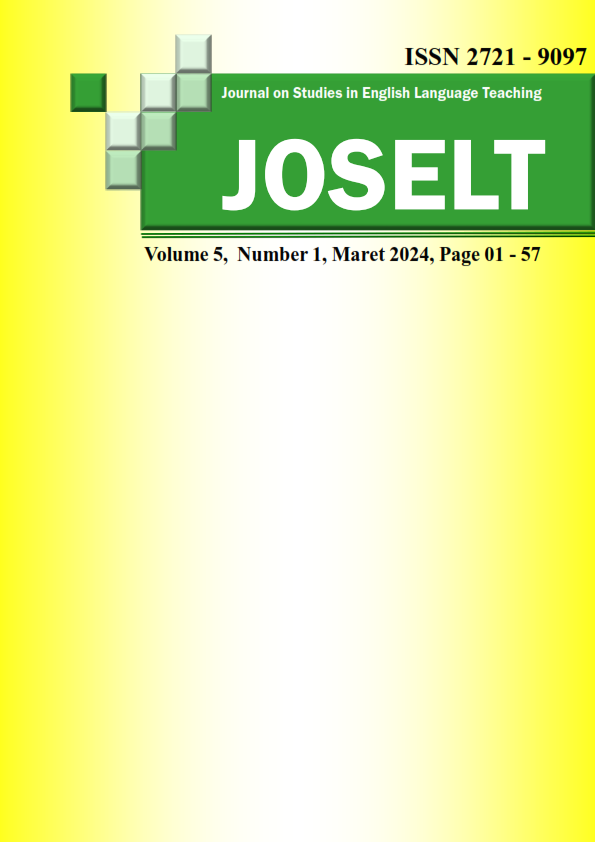Implementation of Three-Step Interview in Speaking Class
Keywords:
implementation, speaking skills, Three-Step InterviewAbstract
The purpose of the current study was to determine how to use a Three-Step Interview as a teaching method to help the eighth-grade students at SMPN 5 Mengwi in the academic year 2023/2024 enhance their speaking abilities. The Three-Step Interview helped the students improve their speaking skills while gaining insight from their peers' thoughts and viewpoints. This study focused on 32 students, 14 of whom were male and 18 of whom were female. Action research in the classroom was used to design this study. The researchers completed two cycles to carry out the investigation. The test and questionnaire that the individuals were given served as the source of the study's data, which was qualitatively examined. The study's findings demonstrated a noteworthy enhancement in the participants' ability to carry out a brief conversation. Furthermore, the pre-cycle mean score was 56.88, the cycle I mean score was 73.28, and the cycle II mean score was 83.16. Additionally, the questionnaire demonstrated that the participants responded favourably to the Three-Step Interview during the learning process.
References
Agung, A., Rahadinatha, K., Krismayani, N. W., Handayani, N. D., & Denpasar, U. M. (n.d.). Improving speaking skills through British parliamentary style debate.
Ary, D., Jacobs, L. C., Sorensen, C., Razavieh, A. (2010). Introduction to research in education (8 edition). Wadsworth, Cengage Learning.
Budiarta, I. K., & Krismayani, N. W. (2014). Improving speaking skill and developing character of the students through collaboration of think-pair-share and the concept of tri kaya parisudha. Jurnal Santiaji Pendidikan (JSP), 4(2), 73–80. https://doi.org/10.36733/jsp.v4i2.446
Burns, A. (2009). Doing action research in english language teaching: A guide for practitioners. In Doing Action Research in English Language Teaching: A Guide for Practitioners. https://doi.org/10.4324/9780203863466
Kagan, S., & Kagan, M. (2009). Why Do We Need Cooperative Learning? In Kagan Cooperative Learning.
Leonita, N. N. S. N. A., Apriyanti, N. P. R., Krismayani, N. W., Joni, D. A. A. W., & Budiarta, I. K. (2023). Speaking Skill in 21St-Century: Studentsâ€TM Perceptions and Challenges in English Language Teaching. Premise: Journal of English Education, 12(2), 614. https://doi.org/10.24127/pj.v12i2.7262
Menggo, S., Merlyna Yuda Pramesti, P. D., & Krismayani, N. W. (2023). Integrating Project-Based Learning in Preparing Students’ Interpersonal Communication Skills on Speaking Courses in Indonesia. International Journal of Learning, Teaching and Educational Research, 22(9), 219–240. https://doi.org/10.26803/ijlter.22.9.12
Sadiku, L. M. (2015). The Importance of Four Skills Reading, Speaking, Writing, Listening in a Lesson Hour. European Journal of Language and Literature, 1(1), 29. https://doi.org/10.26417/ejls.v1i1.p29-31
Yuliandasari, A., & Kusriandi, W. (2018). Students’ perception on english club extracurricular in speaking practices at madrasah. Academic Journal Perspective : Education, Language, and Literature, 3(2), 305. https://doi.org/10.33603/perspective.v3i2.1670

